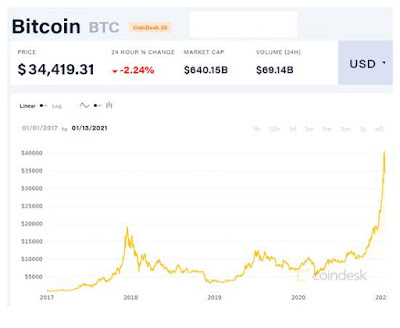In the winter of 2017, the night in Inner Mongolia was very cold, and the outdoor temperature was below minus 20 degrees Celsius.
In a desolate "mine", Feng Sheng, a Bitcoin miner from Hangzhou, Zhejiang Province, went to bed early in a large room with a "bunk bed, sleeping seven or eight people" because there was no entertainment.
"That site is very off the beaten track. It's a half-day drive from the nearest small county town, just like the Gobi Desert. There is nothing but the site and a road." He told The Paper reporter that it was an endless wasteland.
The "mine" Feng Sheng went to was on a wasteland in Inner Mongolia. The picture is provided by the interviewee
What drove this southern guy to this cold and frozen wasteland was a hot Bitcoin market. In 2017, the price of Bitcoin rose from USD 1,000 at the beginning of the year to USD 13,000 at the end of the year, an increase of more than 10 times.
Feng Sheng is just one of many "gold diggers". Behind him is a large group of people who are eager to Bitcoin, who regard Bitcoin as "digital gold".
Starting in the second half of 2020, Bitcoin miners seem to smell the "crazy" smell of three years ago. After the price of Bitcoin broke through $10,000, it went up all the way and once broke the $40,000 mark.
Feng Sheng just graduated from university in 2017, and now he has more than 3 years of "mining" experience, during which time the Bitcoin price plummeted from nearly $20,000 in December 2017 to $3,000 in December 2008 about.
After experiencing the "big storms" and facing the current wave of Bitcoin's rising market, Feng Sheng told The Paper, "Mining is a long-term job. Update the mining machine, plan the site, electricity price, and electricity bill in advance. The subsequent currency price changes have little effect."
Mining is actually an activity with potential policy risks. In September 2017, the People's Bank of China and other seven departments jointly issued the "Announcement on Preventing Token Issuance Financing Risks", halting various token issuance financing activities. Domestic cryptocurrency exchanges were gradually closed, and virtual currency mining was once required to withdraw in an orderly manner. Due to its high power consumption characteristics, virtual currency mining was once included in the list of "eliminated industries" by the "Industrial Structure Adjustment Guidance Catalog (2019 version, draft for comments)" issued by the National Development and Reform Commission, but in the official draft "Escaped".





